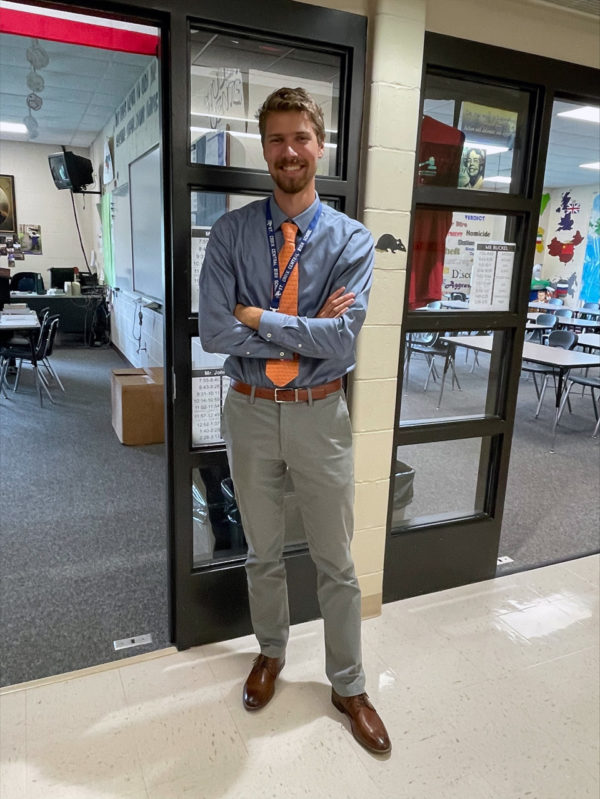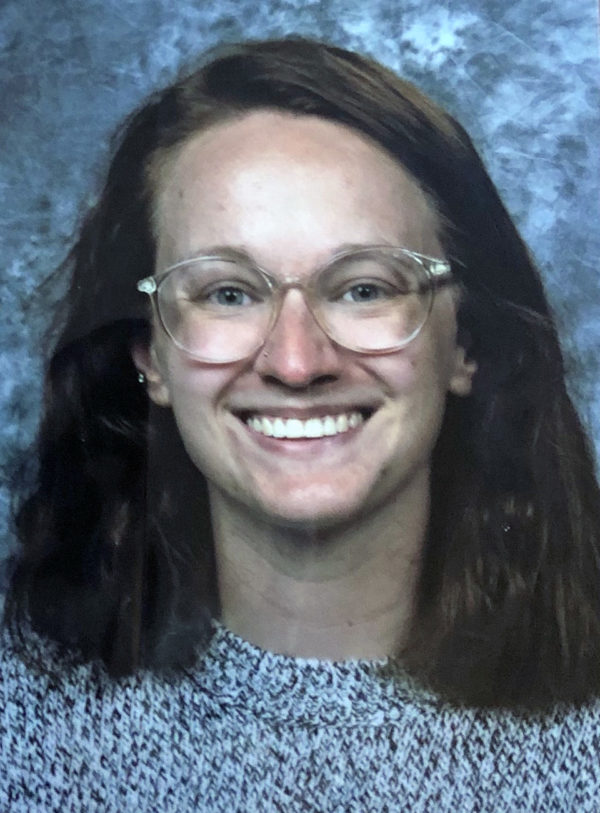Team presents research on teaching about race relations
October 15, 2021
Award-winning journalism
This article won an honorable mention in the feature story category in the 2021 Collegiate Better Newspaper Contest sponsored by the Wisconsin Newspaper Association Foundation. Read more
A team from UW-River Falls conducted research on the Kerner Commission Report and how to teach about race relations. They will be presenting at the National Council for the Social Studies (NCSS) annual conference this November.
The Kerner Commission Report came about in 1968 in the aftermath of civil disorder. The report included recommendations for improving the social conditions, policing and administration of justice. It also gives a detailed history of the lives of Black people in the U.S., according to the U.S. Department of Justice.

Dylan Johnson is a senior student double majoring in broad field social studies and history. He said that this opportunity to conduct research was presented in his class, techniques in high school social studies, back in November. Johnson worked alongside Ali Metcalf, an alumna who graduated in May. Metcalf was a double major in broad field social studies and history.
Johnson and Metcalf worked collaboratively with their professor, Dean Vesperman. Vesperman said the three decided together on the topic, the angle to approach how to teach about the Kerner Commission, and codesigned the curriculum.
“For me, a key aspect of this process is that we are colleagues working collaboratively more than an advisor/advisee relationship,” said Vesperman.
Once completed, the research was submitted for possible acceptance as a chapter for the book “Uncovering a Hidden Curriculum: Teaching and Learning Black History and Culture.” The book is being edited by David Childs and Mark Neikirk from Northern Kentucky University and Patrick Lewis from the Filson Historical Society, according to Vesperman.
“We initially submitted a proposal for the chapter on the Kerner Commission and race relations since 1968, which was accepted. We then wrote the chapter and submitted it for consideration for publication this summer,” said Vesperman.
They have not heard yet if the chapter will be published in the book, but if it is accepted the book is scheduled to be published in spring of 2022. Their findings will also be presented at the NCSS annual conference.

The NCSS conference was originally supposed to be in person last spring, but due to the pandemic it was rescheduled to November and is now virtual. The three researchers will be presenting their curriculum and conclusions at the event.
Initially, Johnson said he was inspired by a guest speaker in his class, Garrett King, who said teachers are not teaching students about Black history, but through Black history.
“There was a lot of content that exists in American history that I didn’t know about until taking a deeper dive. There’s a lot of stuff that we don’t talk about, but it’s so blatantly still affecting us today,” said Johnson.
Metcalf said that one of their main conclusions from the research was that as the U.S. progresses, it will have to address race relations and work towards developing a stronger public voice. The U.S. so far has not implemented any of the suggestions from the Kerner Commission Report.
Johnson said this research will carry with him far beyond the presentation. It inspired him to get more involved in his community, and he is now a board member for the Wisconsin Council of Social Studies.
“I'm kind of intrigued to keep doing more research as I could not just be saying goodbye to my professors, but maybe, keeping in touch with them and working with them in the future to help not only build up connections, but try to improve our future curriculum,” said Johnson. “I've kind of considered some curriculum designs, maybe at the state level, about how we can integrate minorities or different marginalized societies into our curriculums and not have to just be your typical white history.”
Metcalf is now a sixth-grade teacher at the Math and Science Academy in Woodbury. She is teaching Minnesota Studies, which is looking at history, geography, politics, and everything related to the state of Minnesota. She said sharing about her research is part of the reason she was hired.
“I think looking at something like the Kerner Commission, it's making you look at how do I teach Minnesota in a broader, more inclusive way? How do I involve looking at how we have this huge Hmong population that came over and we've had this huge Somali population that came over? How do we include those populations?” Metcalf said. “I always tell my students that Minnesota has the good, the bad, and the ugly. How do we teach the good and the bad and the ugly to students? Because it's important to know that yeah, Minnesota, hasn't always done everything right. The United States hasn't always done everything right. But by acknowledging and teaching about that, we can move that circle in a new direction.”
For Johnson and Metcalf, this was their first time doing research. Metcalf said students who are thinking about doing their own research should remember they are never alone. She said: “Make it your passion project, because there are other people who want to see your passion.”
